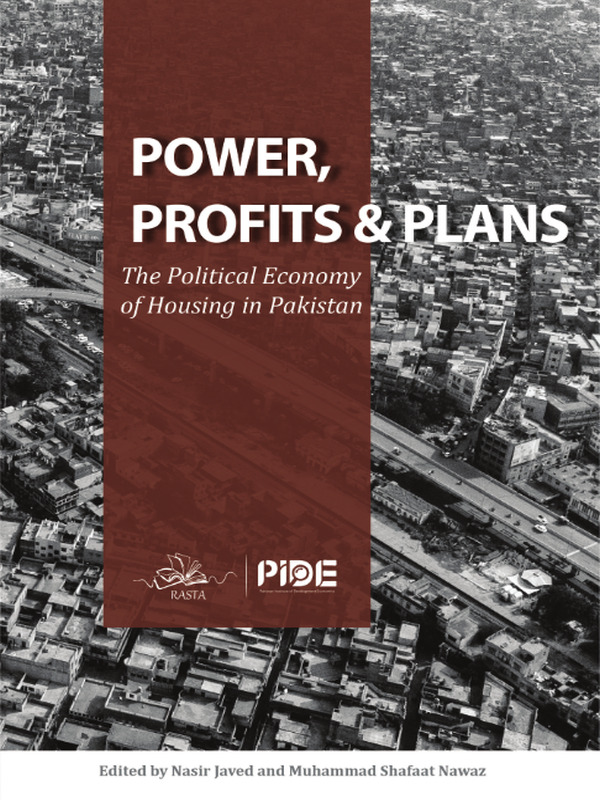Power, Profits & Plans: The Political Economy Of Housing In Pakistan
FOREWORD
In the vast landscape of Pakistan’s political and economic challenges, the housing sector stands as a complex and multifaceted domain. It is a sector that intertwines the aspirations and necessities of millions of Pakistanis, while also reflecting the intricate dynamics of the country’s political and economic systems. In this book, an exploration of the political economy of the housing sector in Pakistan, shedding light on its underlying intricacies and offering a nuanced understanding of its various dimensions is being undertaken.
Written and edited collaboratively by seven distinguished authors, this book aims at exploring the housing sector in Pakistan, from a number of perspectives including land use, tenancy rights, financing, affordable housing to the political economy. The focus is not just a theoretical discourse, but looks at the institutional, governance and even political perspective. The title, “Power, Profit and Plans”, aptly describes the three key drivers that shape the city scape, especially in large cities. Within these two hundred odd pages, the authors have tried to navigate the historical, social, and economic foundations of the housing sector in Pakistan. The process has been initiated by tracing its evolution from the early years of the country’s independence that started with the challenge of accommodating the immigrants from one of the largest human migration in known history and culminating at the latest public sector projects of Naya Pakistan Housing Scheme.
A key factor that has been identified and substantiated with good evidence, is the across-the-board institutional failure, appropriately labelled as the “institutional spaghetti”, a term that is perhaps the best definition of the current scenario.
Drawing on the collective expertise in fields ranging from urban planning and economics to sociology and public policy, the authors present a comprehensive analysis of key issues within the housing sector. The challenges of urbanization and informal settlements to the issues of affordability, accessibility, and sustainability, are reviewed through thecomplex interplay between market forces, government interventions, and societal demands.
An understanding of the political economy of the housing sector is essential for policymakers, academics, practitioners, and concerned citizens. By shedding light on the underlying dynamics, this book aims to contribute to informed decision-making, foster constructive dialogue, and inspire evidence-based reforms.
Recommendations from the authors are grounded in empirical evidence, global best practices, and an understanding of the local context, ensuring their practical relevance and potential for positive change. It is hoped that this book serves as a catalyst for critical conversations, policy reforms, and transformative actions in the realm of housing in Pakistan. By engaging with the political economy of this sector, it will significantly contribute to a more equitable, inclusive, and sustainable future for all Pakistanis.
Last but not the least, I would like to congratulate the Pakistan Institute of Development Economics (PIDE), led by its dynamic Vice Chancellor, Dr. Nadeem ul Haque, for initiating a process which highlights the plight of the urban sector through projects like these, where good research material is limited.




